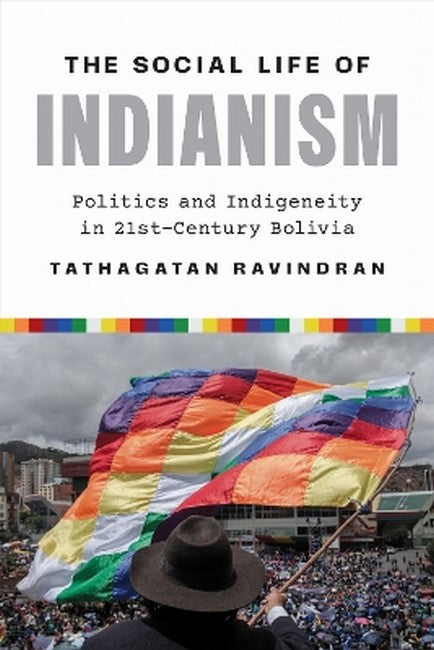Tathagatan Ravindran is an anthropologist working on social movements, political identities, indigeneity, and race/ethnicity in Latin America. He is the director of Epistemological Justice and the Laboratory of Data at Baobab: Centro de InovaciOn en Justicia Etnicoracial, de GEnero y Ambiental in Cali, Colombia.
Request Academic Copy
Please copy the ISBN for submitting review copy form
Description
List of Abbreviations Introduction Chapter 1. Calling for Indian Revolution: The Birth and Maturation of Indianist Ideology Chapter 2. Toward a New Common Sense: Indigenous Counterpublics and the Diffusion of Indianism Interlude 1. !Evo presidente! Chapter 3. A Journey without Guarantees: Ideological Refractions and the Emergence of Folk Indianism Chapter 4. "We Cannot Forget Our Roots!": Ethnoracial Identities in Indianist Bolivia Chapter 5. When Folk Ideology Feeds Back into the Canon: Indianist Praxis between Revival and Refusal Chapter 6. Across the Wide Spectrum: Indianist Logics in State and Social Movement Discourses Interlude 2. The 2019 Coup and Its Aftermath Chapter 7. The Rebellion of the Wiphalas: Racist Backlash and the Radicalization of Folk Indianism Conclusion Acknowledgments Notes References Index
Ravindran shows how early Indigenous intellectuals contested dominant narratives of Bolivian mestizaje, producing an alternative ideology, Indianism, that highlighted the centrality of race in Andean society and called for Indian nationalism. In the last decades, as urban Indigenous activists mobilized politically and created counterpublics, these elements refracted into a hybrid "folk ideology" that led to a transformation of political consciousness and new commonsense understandings of indigeneity. Set in the turbulent 2000s in Bolivia's "rebel city," El Alto, this remarkable book shows how ideologies take form in everyday life, providing tools for use in the struggle against structural racism. - Nancy Postero, University of California, San Diego, author of The Indigenous State: Race, Politics, and Performance in Plurinational Bolivia An up-close-and-personal portrait of the politics of Indigenous cultural revival in contemporary Bolivia that shows how diverse political perspectives can emerge within a community of ideologically committed thinkers. Ravindran's approach of following Indianismo from the sidewalks to political publications and into living room discussions among self-identified Indianist activists and theorists is incredibly effective and rewarding. Most significantly, this text examines the ways that rural-to-urban migration and racialized experience in cities and public life shaped a new political perspective that is grounded in Indianism but looks beyond it. - Carwil Bjork-James, Vanderbilt University, author of The Sovereign Street: Making Revolution in Urban Bolivia

